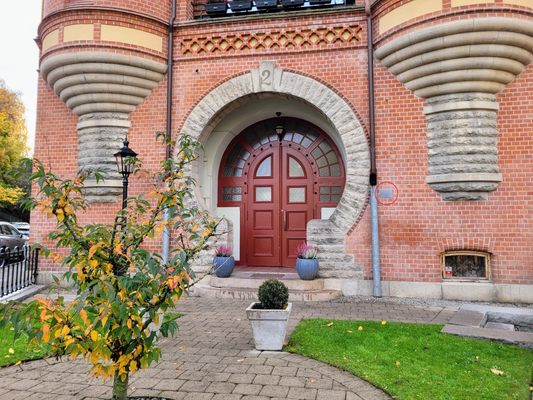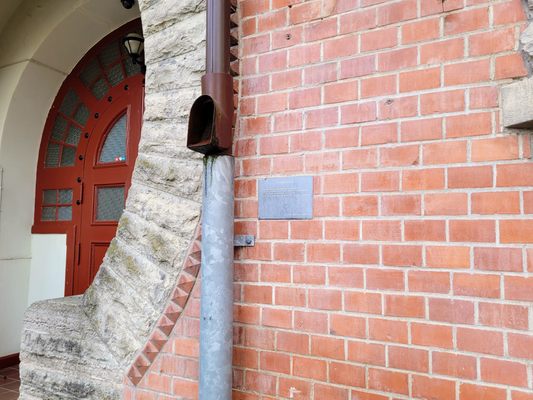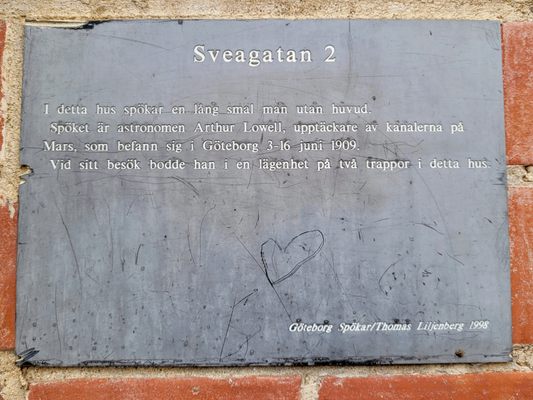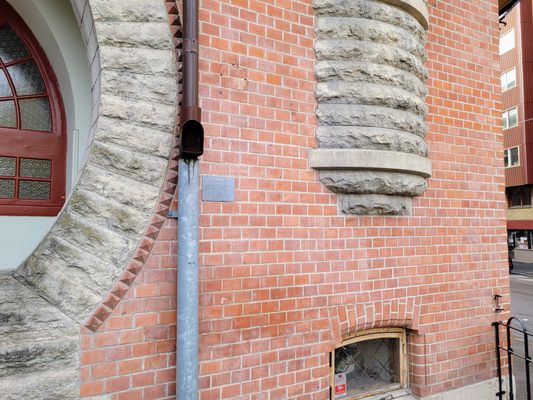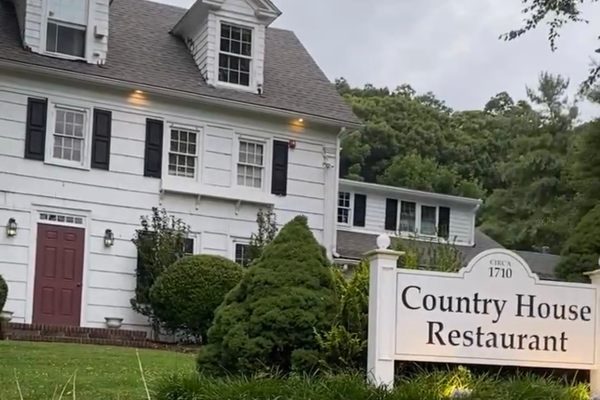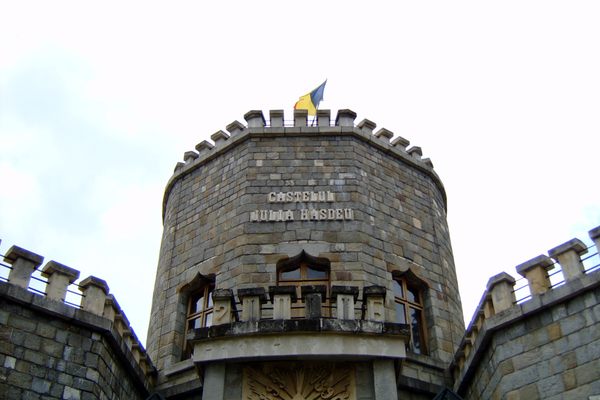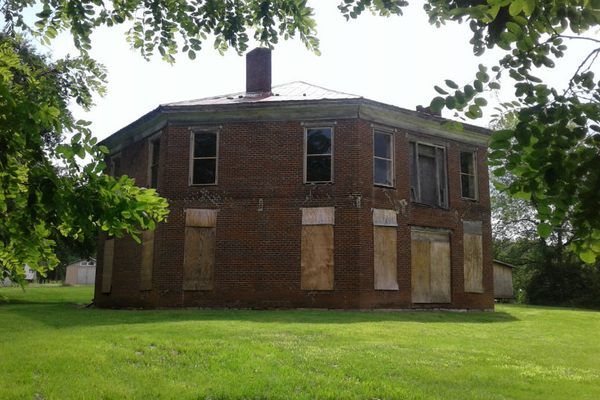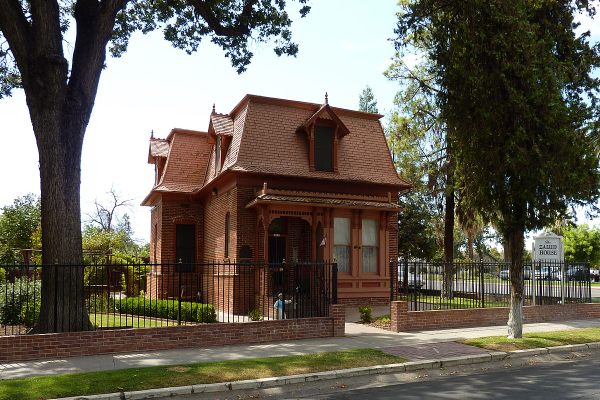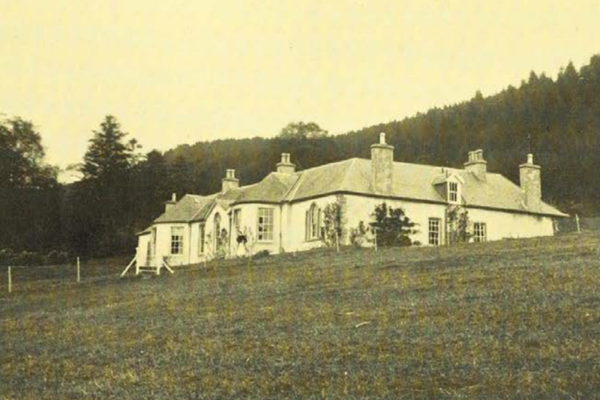About
Known for its unusual keyhole-shaped entry, the Keyhole House—Nyckelhålshuset in Swedish—is an Art Nouveau residential building in Gothenburg. However, what truly makes it stand out is not just the entrance, but the intriguing sign beside it, which reads: "This house is haunted by a tall, slim, headless man. The ghost is astronomer Arthur Lowell, discoverer of the canals on Mars, who was in Gothenburg from June 3–16, 1909. During his visit, he stayed in an apartment on the second floor of this house."
The enigmatic plaque has left new residents feeling slightly uneasy, drawn the attention of curious ghost hunters, and even resulted in the building being listed as one of the city’s most haunted locations by Gothenburg's official tourism board.
But things aren’t as they appear. Instead of being a true historical marker, the sign is a remnant from a 1998 art project called Gothenburg Haunts by artist Thomas Liljenberg. He placed signs all over Gothenburg that mixed truths about the city’s history with fictional stories. Through this project, Liljenberg aimed to inspire creativity and encourage a more imaginative view of the city.
The "tall, headless man" mentioned on the plaque probably refers to American astronomer Percival Lowell, even though it mistakenly calls him Arthur (a potential intentional twist by the artist). Lowell famously speculated that canals he observed on Mars were built by an advanced civilization, a theory later debunked as an optical illusion.
Although Liljenberg's art project was intended to be temporary, the faux plaque on the Keyhole House has remained over the years. The artist is pleased that his work is still welcomed, creating a blend of myth and reality.
Related Tags
Know Before You Go
The plaque is located at the corner of Sveagatan and Risåsgatan and is viewable 24/7. Please be respectful of residents and keep noise to a minimum. The nearest tram/bus stop is Prinsgatan.
Community Contributors
Added By
Published
October 24, 2024
